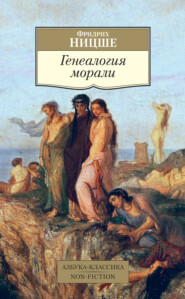По всем вопросам обращайтесь на: info@litportal.ru
(©) 2003-2024.
✖
Human, All-Too-Human: A Book For Free Spirits; Part II
Настройки чтения
Размер шрифта
Высота строк
Поля
18
The play on Freudenschaften (i. e. pleasure-giving passions) and Leidenschaften (i. e. pain-giving passions) is often used by Nietzsche, and is untranslateable. —Tr.
19
The wife of the Stoic Thrasea Paetus, when their complicity in the great conspiracy of 65 a. d. against Nero was discovered, is reported to have said as she committed suicide, “It doesn't hurt, Paetus.” —Tr.
20
It is interesting to compare this judgment with Carlyle's praise of Jean Paul. The dressing-gown is an allusion to Jean Paul's favourite costume. – Tr.
21
The German copyright expires thirty years after publication. – Tr.
22
Nietzsche himself was extremely short-sighted. – Tr.
23
In the sixth century b. c. Pythagoras founded at Croton a “school” somewhat resembling a monastic order. Among the ordeals for novitiates was enforced silence for five years. – Tr.
24
In the German Aufklärung there is a play on the sense “clearing up” (of weather) and “enlightenment.” – Tr.
25
Stendhal. – Tr.
26
A transposition of sacrifizio dell' intelletto, the Jesuit maxim. – Tr.
27
The original, by a curious slip, has “seventh.” – Tr.
28
Clearly autobiographical. Nietzsche, like all great men, passed through a period of modesty and doubt. – Tr.
29
Nietzsche here alludes to his own countrymen. – Tr.
30
An allusion to the poem “Der Wilde” (The Savage) by Säume, which ends with the line, “Sehet, wir wilden sind doch bessere Menschen” (Behold, after all, we savages are better men). – Tr.
31
Diogenes, founder of the Cynic school, which derived its name from κυών (dog). – Tr.

















